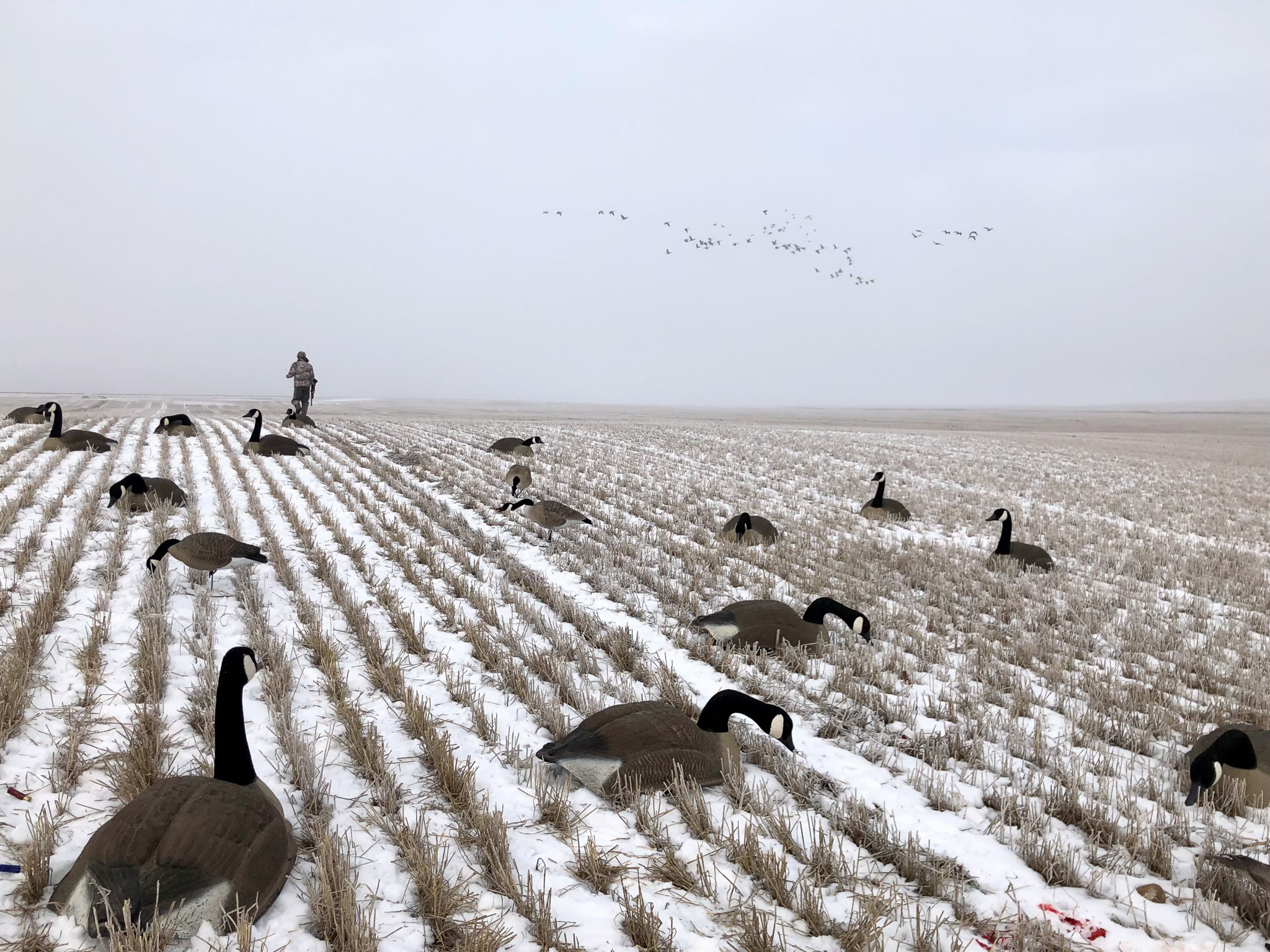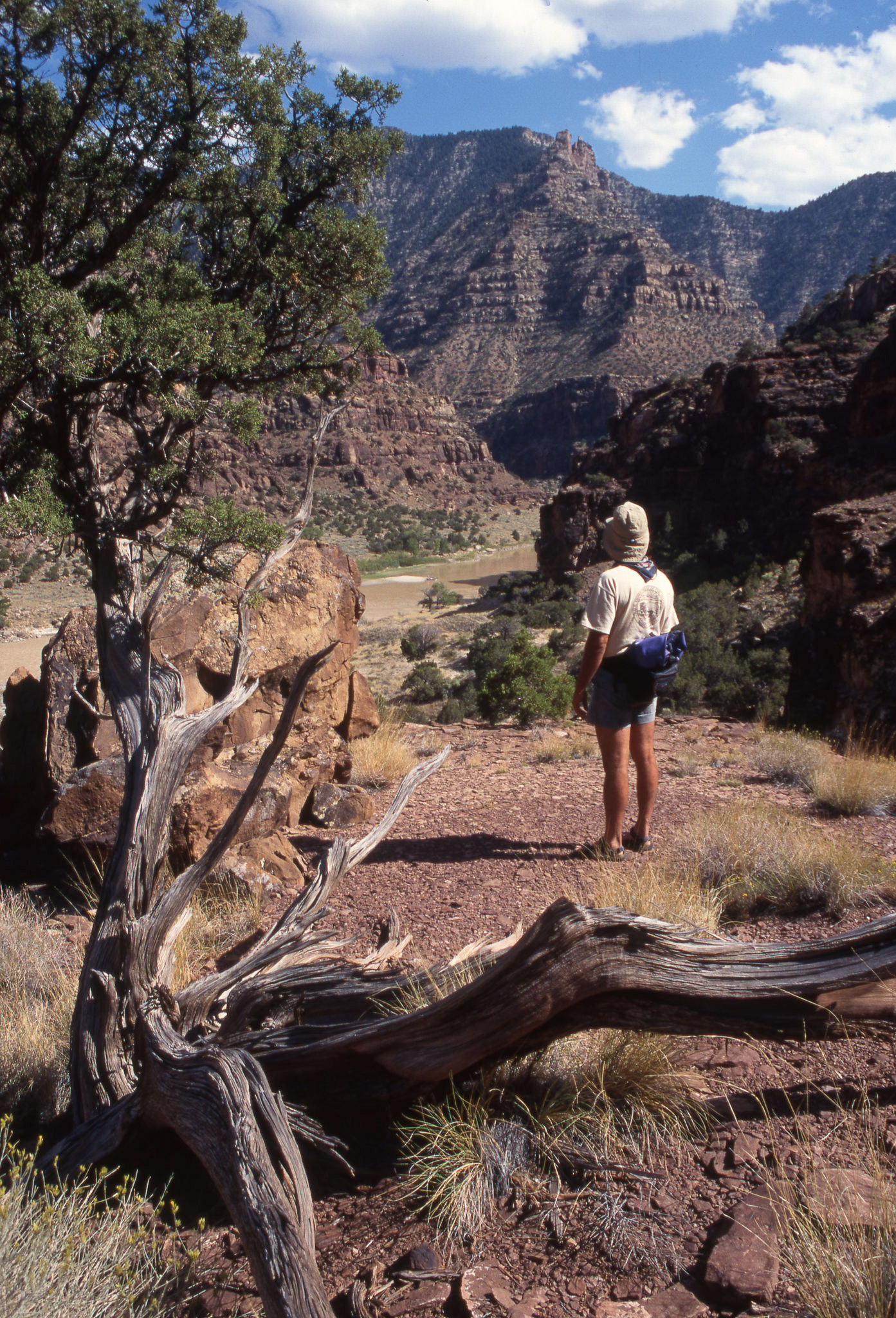The Ute Indian Tribe has terminated all active nonmember hunting, fishing, and recreation permits for its 4-plus million acres of tribal lands in the Uintah Basin of northeastern Utah, an area that’s twice the size of Yellowstone National Park. The Tribe has also set “an indefinite moratorium” on issuing any new permits for nonmembers.
The closure was announced on Jan. 24 as “a response to recent events involving nonmember activities on [Ute] Tribal land that gave rise to serious concerns over the safety of Tribal employees, officers, and members. The Tribe has taken a hard stand to protect its people from nonmembers who exploit Tribal permits and disregard Tribal rules and regulations in place to protect Tribal communities and natural resources.”
A story published by the Salt Lake Tribune on Tuesday shed more light on the “disrespectful violations,” which included trash — soda cans and toilet paper — left at campsites, ATV tracks in fragile areas, and evidence of trespassing on private areas and closed roads.
“Nonmember hunting and fishing on our lands is a privilege, not a right,” Ute Business Committee Chairman Julius T. Murray, III said in the public statement. “As long as there are individuals who disrespect Tribal jurisdiction and sovereignty and treat our homeland as a place of lawlessness, then we have no choice but to draw a hard line on all nonmember permits.”
The key issue that may have triggered the closure stems from a July 2022 incident in which a Ute Fish and Wildlife officer confronted a couple riding an ATV on Ute land. The officer fired at and injured both nonmembers, according to court documents obtained by Outdoor Life and a statement from the U.S. Attorney’s Office District of Colorado.
According to the Tribune, the man and woman on the ATV were driving away at the time of the shooting; Murray told the newspaper the officer was also injured and dragged alongside the four-wheeler.
The officer, Waneka Rosebud Cornpeach, was indicted in November for assault with a dangerous weapon and assault resulting in serious bodily injury, both while in Indian Country. Because the Ute Tribe has civil jurisdiction but not criminal jurisdiction, Murray contends, the Tribe has been unable to pursue charges against the couple and is frustrated with how the federal government has handled the case.
The Ute Business Committee, which is the governing council of the tribe, and Ute Tribe Fish and Wildlife Management officials did not respond to repeated requests for comment from Outdoor Life in recent weeks.
Threats of Violence on the Fort Peck Indian Reservation
Some 800 miles to the northeast, another reservation abruptly ended its non-tribal hunting privileges this year — also as a direct result of conflict. The Fort Peck Assiniboine and Sioux Tribes in northeast Montana closed its non-tribal bird season early on Oct. 23 due to “several altercations and threats of violence against Tribal hunters by non-tribal hunters and landowners,” according to an October press release. In contrast with the Ute response, however, the Fort Peck closure is temporary and will be reinstated for the coming hunting season.
“There’s one [non-tribal] guy that don’t live here but he owns land. A tribal member tried to cross his land and he got into an argument threatening to shoot people. Just to be safe we closed the season down so nothing like that would happen,” says Fort Peck Tribes Fish and Game director Robbie Magnan. “This is the first problem we’ve had in the 30 years we’ve been doing this … We had 1,500 [non-tribal] hunters on the reservation last year.”

The particulars of land ownership within reservations varies widely across the country, but on Fort Peck and other reservations in the Northern Plains, there are three primary types of ownership: non-tribal deeded land ownership, tribal land ownership, and trust land that’s managed, but not owned, by the tribe. So while some nonmembers do own land within the Fort Peck Indian Reservation as a result of the Homestead Acts, members of the Fort Peck Tribes still retain treaty rights from 1888 that allow them to cross privately-owned land within reservation boundaries.
“The closures are temporary until we figure this out,” says Magnan, noting that there’s a Fort Peck Fish and Game Commission meeting next week that will include discussion of the issue. “What it is is people have a misunderstanding of jurisdictions on reservations … You get some [nontribal] people that own the land and try to charge a fee to hunt the land. That’s illegal.”
Magnan is referring to another conflict where a landowner tried to charge fellow nontribal members for hunting. As a result, there’s now an alert on the Fort Peck Fish and Game site that reads: “IT HAS COME TO OUR ATTENTION!!! When you are hunting on the Ft Peck Indian Reservation, if approached by an individual(s) who tell you that you must pay a fee to access the land you are hunting on – DO NOT PAY THEM! It is illegal and they have no authority to extort money or valuables from you.”
Despite the headaches, Magnan is optimistic about the future of nonmember hunting at Fort Peck. The key to resolving these conflicts, he says, is educating folks about state and tribal jurisdiction.

Although nothing released by the Ute Tribe suggests its own recreational closure is irreversible, there’s no clue as to when, if ever, nonmember privileges might be restored. While it’s currently possible for nonmembers to log into and even sign up for a hunting and fishing account with Ute Tribal Fish and Wildlife, no permits are currently available for purchase.
Since the number of nonmember recreational permits issued per year is not publicly available, it’s unclear if the loss of revenue from nonmember permits may burden the Reservation’s natural resource management. Meanwhile, Ute trust land (about 1.3 million acres) contains significant oil and gas deposits. So the loss of, say, a few hundred or even thousand hunting, fishing, and recreational permits may be negligible.
The Ute Tribe Fish and Wildlife Department manages some 4.5 million acres of natural resources in the Uintah Basin. The agency’s landing page, which appears to have last been updated in 2015, still shows examples of the recreational opportunities now lost to tribal members: “The Fish and Wildlife Department makes available big game, waterfowl, upland game, fishing, camping and boating permits to non tribal members throughout the reservation.”
The Ute Indian Tribe has a membership of roughly 3,000 individuals, over half of whom live on the Uintah and Ouray Reservation, and is comprised of three bands. It’s the second-largest Indian reservation by acreage in the U.S.
